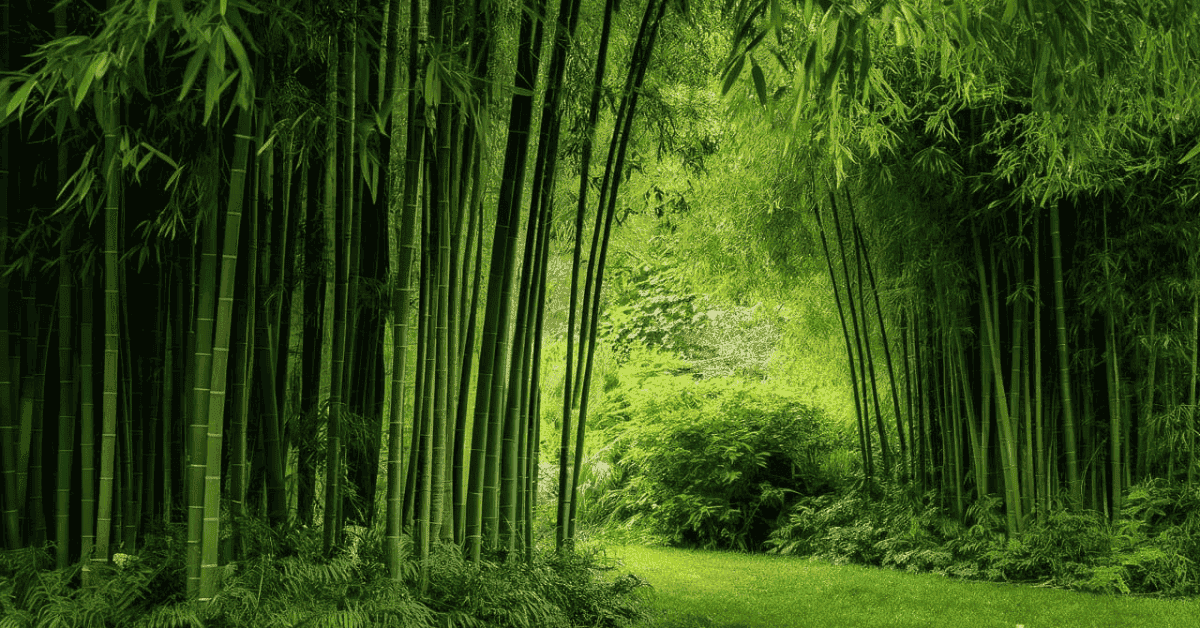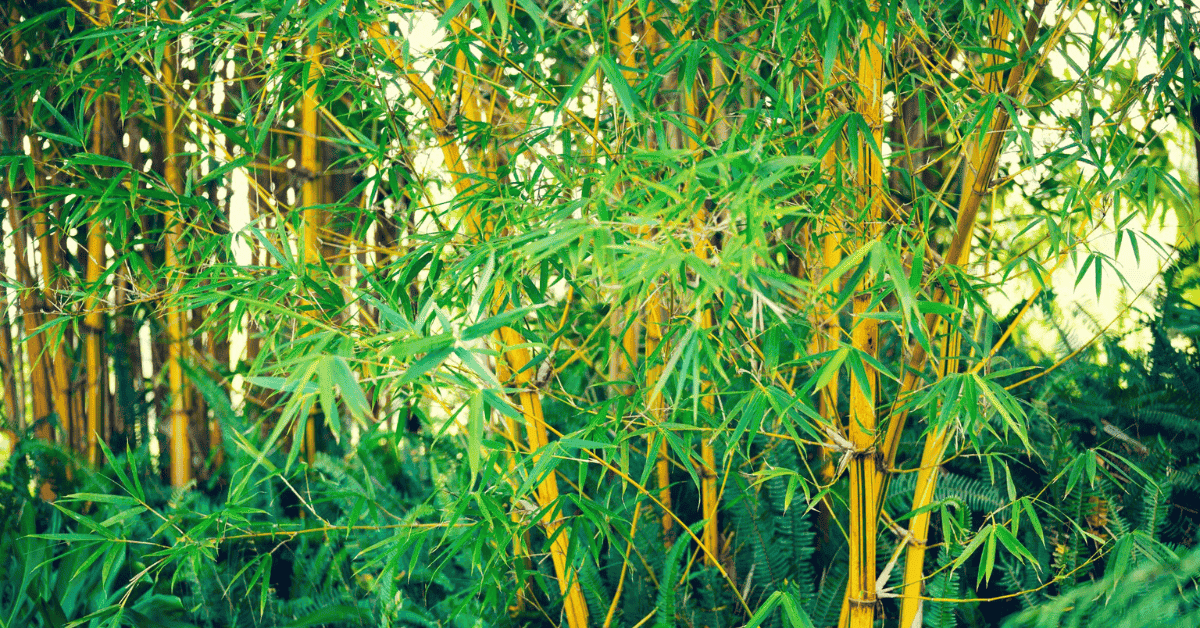World Bamboo Day is observed annually on September 18 to raise global awareness about the environmental, economic, and social benefits of bamboo. This day highlights bamboo’s significance as a sustainable resource, emphasizing its fast-growing nature, versatility, and contribution to a greener planet.
Key Facts about World Bamboo Day 2024
- Observed on: September 18, 2024
- Organized by: The World Bamboo Organization (WBO)
- Theme of the 16th World Bamboo Day: “Next Generation Bamboo: Solution, Innovation, and Design”
- Significant Event: The world’s tallest bamboo tower (140 feet) was inaugurated in Raipur, Chhattisgarh, on this day.
Click Here: 5 Secret Health Benefits of Strawberries
Purpose of World Bamboo Day
The World Bamboo Day initiative aims to shed light on the multifaceted uses and benefits of bamboo, which include:
- Sustainable Resource: Promoting bamboo as a key element in environmental sustainability.
- Economic Development: Encouraging its use in industries to promote local economies.
- Traditional Usage: Supporting traditional bamboo uses to keep cultural practices alive.
- Bamboo Cultivation: Promoting global bamboo cultivation to drive economic and environmental impact.
The Origins of World Bamboo Day
How It All Began:
- Established in 2009 at the 8th World Bamboo Congress (WBC) in Bangkok, Thailand.
- It was initiated by Kamesh Salam from Assam, the then-President of the World Bamboo Organization (WBO).
- The first-ever World Bamboo Day was celebrated on September 18, 2009, and has been observed globally ever since.
The 12th World Bamboo Congress held in Taiwan in April 2024 further elevated the day’s relevance by focusing on innovative bamboo solutions.
Why Bamboo Matters: Environmental and Economic Impact
Bamboo’s Role in Sustainability
Bamboo is not just any plant; it’s a solution to many pressing environmental issues. World Bamboo Day is celebrated to advocate for bamboo’s wide-reaching potential:
- Carbon Sequestration: Bamboo’s rapid growth makes it an efficient carbon sink, contributing to climate change mitigation.
- Non-Timber Resource: Unlike trees, bamboo is classified as a non-timber forest product, making it a sustainable alternative in industries like construction and textiles.
- Biodiversity Conservation: Bamboo forests support ecosystems, providing shelter and food for animals like pandas and gorillas.
Bamboo Around the World: A Global Resource
Bamboo’s Global Spread
- With 1678 species across 123 genera, bamboo grows in diverse climates, from tropical regions to mountain ranges.
- China leads with over 500 species, earning the title of “The Kingdom of Bamboo.”
- India covers 13.96 million hectares with bamboo, contributing significantly to the global supply.
Bamboo in India: A Game Changer for Farmers
Regulatory Changes
In India, bamboo, despite being a grass, was historically classified as a tree under the Indian Forest Act of 1927. However, the 2017 amendment redefined bamboo as a grass, allowing farmers to cultivate and harvest bamboo without regulatory restrictions. This opened up opportunities for increased bamboo commercialization through the National Bamboo Mission.
World Bamboo Day 2024 Highlights

- Tallest Bamboo Tower: Union Minister Nitin Gadkari inaugurated a 140-foot bamboo tower in Raipur, constructed by Bhavya Srishti Udyog.
- Nagaland Celebrations: The Nagaland Bamboo Development Agency celebrated the day by awarding the Bamboo Entrepreneur Award to Aosanen for innovation in bamboo craftsmanship.
- BAMBOOK Project: Launched in 2016, this global bamboo directory connects bamboo suppliers, innovators, and researchers.
The Future of Bamboo: Innovating for Tomorrow
Bamboo is often described as the “next big thing” in sustainable development. The WBO has aligned its initiatives with the United Nations Sustainable Development Goals (SDGs) to maximize bamboo’s role in environmental sustainability, economic growth, and social equity.
World Bamboo Day is not just a celebration—it’s a call to action for everyone to recognize bamboo’s critical role in creating a sustainable future.
Conclusion
World Bamboo Day 2024 marks a pivotal moment in showcasing bamboo’s environmental, economic, and cultural significance. As this incredible resource continues to grow in importance, the observance on September 18 serves as a reminder of bamboo’s powerful contribution to a more sustainable world.
Click Here: Health Benefits of Chia seeds
FAQs
What is the theme of World Bamboo Day 2024?
The theme for World Bamboo Day 2024 is yet to be officially announced, but previous years have focused on promoting sustainable bamboo usage and raising awareness about its environmental benefits.
Is today Bamboo Day?
World Bamboo Day is celebrated annually on September 18. You can check the current date to see if today is Bamboo Day.
What is the meaning of Bamboo Day?
World Bamboo Day is a global event aimed at raising awareness about bamboo’s environmental benefits, promoting sustainable bamboo production, and educating people on its various uses.
What is the mission of World Bamboo?
The mission of World Bamboo is to promote the sustainable and responsible use of bamboo, to conserve natural resources, and to foster economic and social development through bamboo.
World Bamboo Day 2024 theme
The specific theme for 2024 hasn’t been released yet. However, the day traditionally focuses on sustainability, ecological benefits, and the versatility of bamboo.
World Bamboo Day activities
Activities include bamboo planting events, workshops on bamboo crafts, seminars on sustainable bamboo cultivation, and exhibitions displaying bamboo products.
World Bamboo Day quotes
Example: “Bamboo is the perfect combination of strength and flexibility—an inspiration for us to bend but not break.”
What is special about bamboo?
Bamboo is known for its rapid growth, sustainability, and versatility. It is also eco-friendly, absorbing more CO2 and releasing more oxygen than trees.
What is the use of a bamboo tree?
Bamboo is used for construction, furniture, paper production, textiles, food, and as a natural air purifier.
Is bamboo a type of wood?
Bamboo is technically a grass, not wood. However, it is used like wood in construction and manufacturing due to its strength and flexibility.
How is bamboo used in India?
In India, bamboo is used for housing, handicrafts, paper production, furniture, musical instruments, and traditional medicine.
What is bamboo best used for?
Bamboo is best used in construction (as scaffolding and flooring), making eco-friendly products, furniture, and as a sustainable alternative to plastic.
Why is bamboo called Lucky?
Bamboo is considered lucky in many cultures, especially in Feng Shui, where it symbolizes good fortune, health, and prosperity.
Is bamboo good for home?
Yes, bamboo is considered good for homes as it symbolizes growth and flexibility, and it also purifies the air by removing toxins.
Is 2-layer bamboo lucky?
Yes, in Feng Shui, 2-layer bamboo symbolizes love and harmonious relationships.
What is the meaning of 5 bamboo stalks?
5 bamboo stalks represent the five elements of life: wealth, happiness, longevity, love, and good health.
What is an interesting fact about bamboo trees?
Bamboo can grow up to 3 feet in just 24 hours, making it one of the fastest-growing plants on Earth.
What does bamboo symbolize?
Bamboo symbolizes strength, flexibility, growth, and resilience. It is often seen as a symbol of prosperity and luck.
What are the benefits of a bamboo plant?
Bamboo helps purify air, acts as a natural humidifier, is a sustainable building material, and is used in various eco-friendly products.
Why do we love bamboo?
We love bamboo for its versatility, sustainability, fast growth, and the fact that it’s a renewable resource with many uses.
Bamboo uses
Bamboo is used in construction, as furniture, in clothing textiles, for food, in cosmetics, and as a renewable material for making eco-friendly products.
Bamboo tree
The bamboo tree is technically a type of grass, but it grows to resemble a tree and is used similarly in construction and craft industries.
Bamboo scientific name
The scientific name of bamboo varies by species, but a common variety is Bambusa vulgaris.
Bamboo plant
The bamboo plant is a fast-growing grass with woody stems, used for a wide range of applications including construction, crafts, and ecological restoration.
Bamboo animal
The panda is the most famous animal associated with bamboo, as it primarily feeds on bamboo shoots and leaves.

